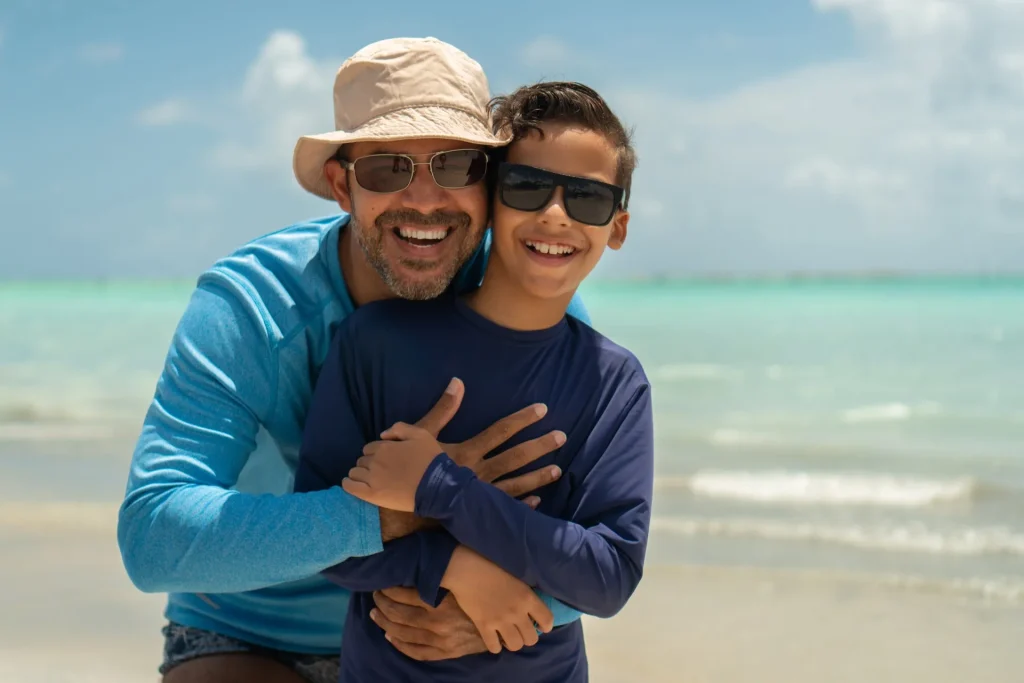Menu
- Home
- Ask Our Pharmacist
- Your EFAP
- Your Wellness
- Workplace Wellness
- Get Help Now
close

Skin cancer is the most common of all cancer types, with one third of all new cases in Canada diagnosed as skin cancer. There are many different types of skin cancer and approximately 90 per cent are caused by ultraviolet (UV) rays from the sun.
In addition to prolonged exposure from UV rays, key factors that may increase your risk of developing skin cancer include being fair skinned, the presence of multiple moles on the face or body, regular use of tanning beds, past severe sunburns, and/or a personal or family history of skin cancer.
It is important to emphasize that people of all colours are at risk for skin cancer, skin ageing, and sunburn from spending time in the sun.
The number one tip is to limit or reduce your time outside, especially during peak UV periods during the midday hours (between 11 a.m. and 3 p.m.). Other sun-safety habits include:
Numerous clinical studies clearly show that the use of sunscreens can reduce the risk of many different types of skin cancer by up to 40 per cent.
Look for products approved by the Canadian Dermatology Association. An ideal sunscreen should:
There are two main types of sunscreens available for purchase:
This controversial topic is partly due to social media influencers spreading misinformation about how sunscreen can cause more harm than good. Sunscreens do not cause skin cancer and any correlation is likely due to individuals spending more time outdoors, exposed to harmful UV rays.
An SPF 15 sunscreen blocks 93 per cent of UVB radiation, and SPF 30 blocks 97 per cent. After that, the difference in protection is small. SPF 50 blocks 98 per cent, and SPF 100 stops 99 per cent of UV rays from reaching your skin. Save yourself some money and don’t overspend on expensive products with an SPF over 30! Read other sunscreen 101 facts from the Canadian Dermatology Association.
It’s more than you think: for each application, use about six teaspoons (roughly one-shot glass worth) of sunscreen on your body, and one additional teaspoon for your face and neck.
In addition, experts advise using a cream-based sunscreen over a spray-on sunscreen. Because spray-on sunscreens are fast drying, and sometimes not clearly visible once sprayed onto the skin, it is difficult to know if it was applied evenly on the body.
Vitamin D is produced by the body when your skin is exposed to UV rays. Even though sunscreens block out most UV rays, scientific studies have not shown that using sunscreen regularly will affect vitamin D levels in the body or cause a deficiency of vitamin D.
The information provided in this article is for personal use, reference, and education only. ASEBP does not provide medical advice. Before starting any medication or product, you should always consult with your pharmacist, health care provider, or call Alberta Health Link at 811.